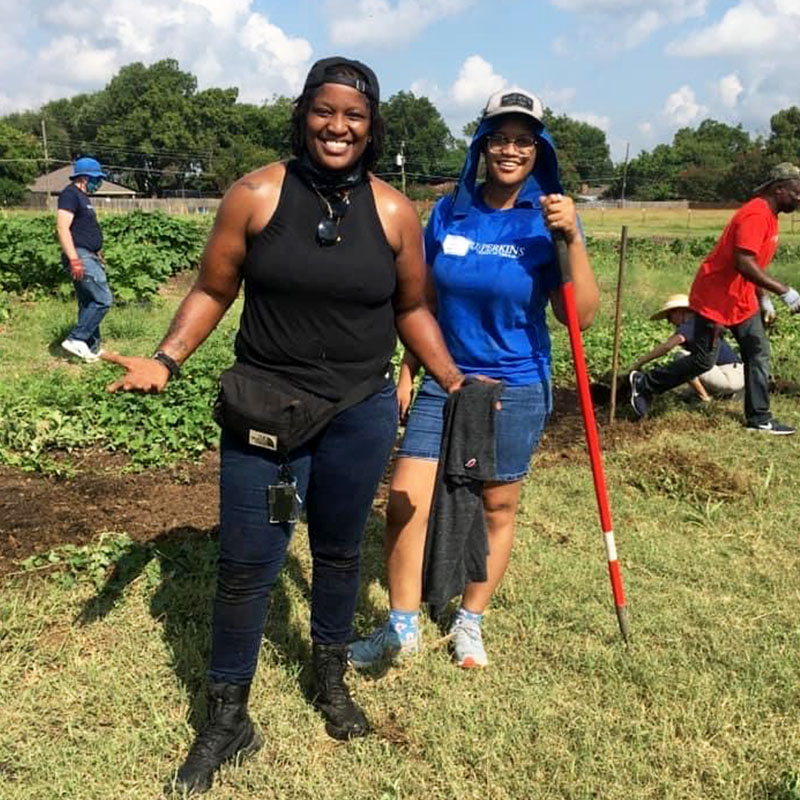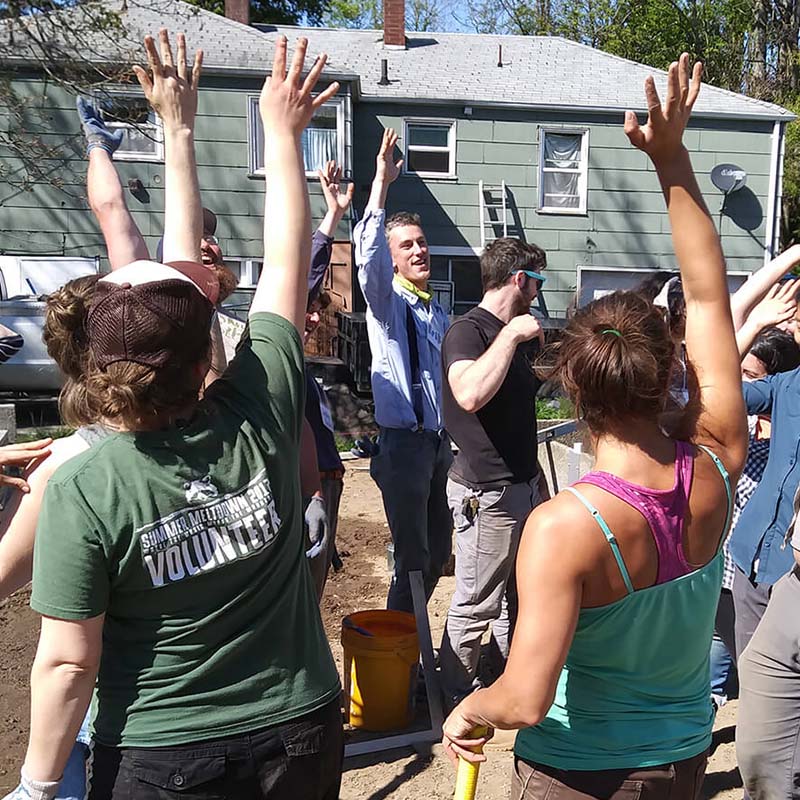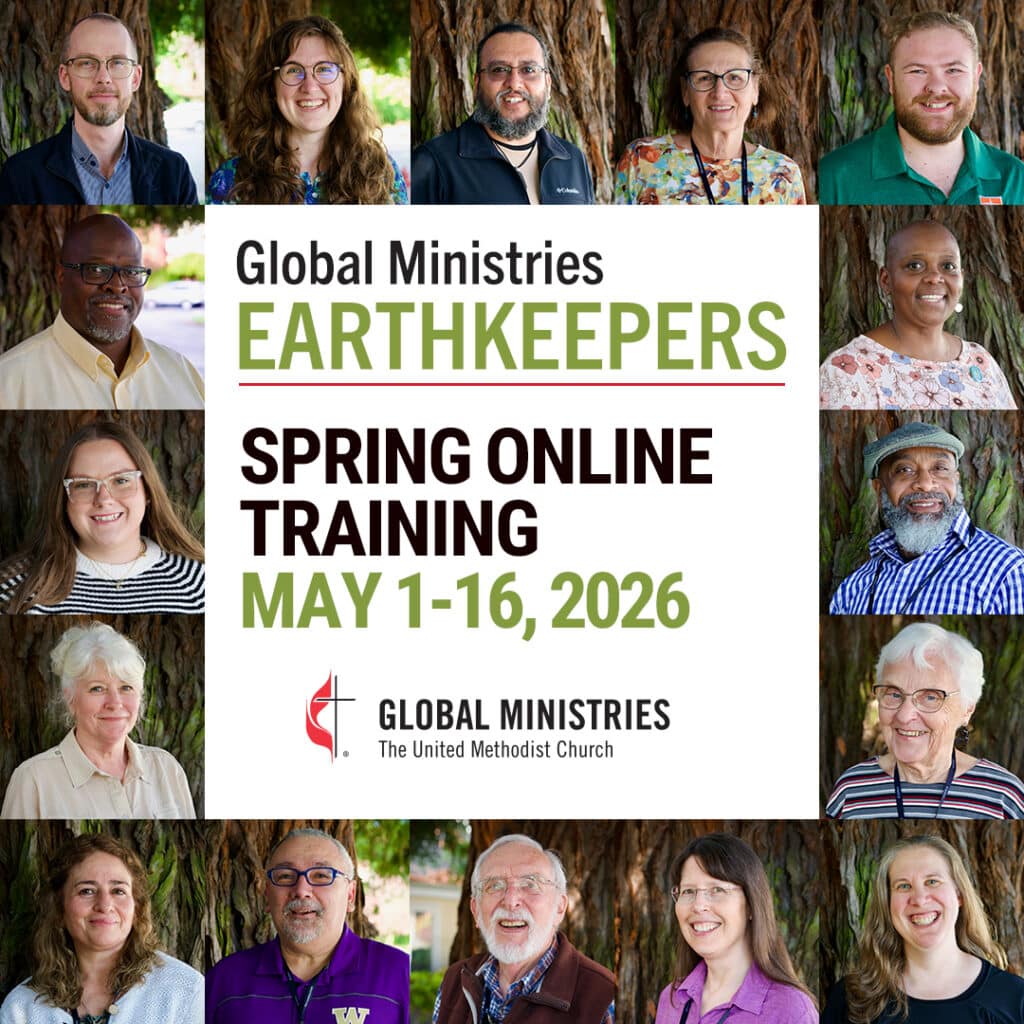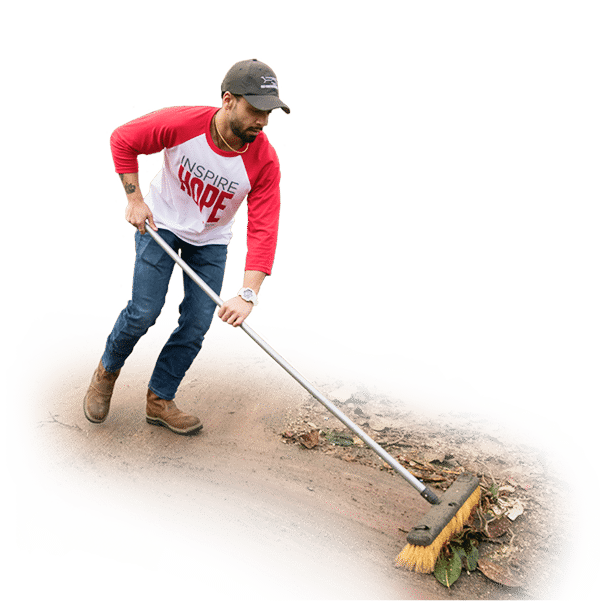Upcoming EarthKeepers Spring 2026 Online Training
In honor of the 10th anniversary of the Global Ministries EarthKeepers program, past participants may apply to participate again. However, applications from new participants will be given priority over past participants.
Training dates: May 1–16, 2026
Application Deadline is March 25
The EarthKeepers Spring Online Training will be offered in limited Spanish (some materials will be available only in English).
Plenary Sessions
Friday, May 1, 2026: Plenary Session 1 — 8:00–9:30pm ET
Friday, May 8, 2026: Plenary Session 2 — 8:00–9:30pm ET
Saturday, May 16, 2026: Plenary Session 3 — 10:00am–1:00pm ET
Additional Training Components
- One 45-minute coaching session with a trainer between May 4–15. Participants will book their session after training begins at a mutually convenient time.
- Two small group meetings (participants may indicate their preferred group):
Group A: Tuesday, May 5 & 12 — 10:00–11:15am ET*
Group B: Tuesday, May 5 & 12 — 2:00–3:15pm ET
Group C: Wednesday, May 6 & 13 — 1:00–2:15pm ET
Group D: Wednesday, May 6 & 13 — 8:00–9:15pm ET
* Group A available in Spanish.
Participation Requirements
Participants must complete all homework, fully participate in all live online Zoom plenaries, and attend small group sessions in order to be commissioned.



